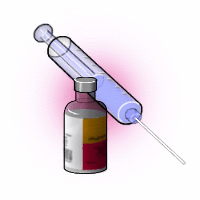I Couldn't Care Less: What's in It for Me?
Created | Updated Nov 10, 2013

What's in it for Me?
Here's something that may seem a little counter-intuitive: when people who have been caring for someone up until the end of their lives lose the person they have cared for, it is not uncommon for thee carer to lose twice. They lose their loved one, and they lose their role. Okay, so it's probably not that counter-intuitive if you think about it, and I've no doubt most of you have, and are, but on the face of it I'm sure you'd agree the one benefit of the end of the road is that you are no longer burdened by the role of carer. Knowing that this is not always the cases prompts the question: what do you get out of being a carer?
I can't speak for all carers, obviously. As usual, therefore I is best if I speak for myself. There is no denying the fact that I am conscious that being a carer reinforces my sense of self-worth, and even my sense of self. If there is a reason not to refer to a disabled person as a disabled person it is the desire to avoid writing them of as nothing more than a disabled person. I don't know if everyone necessarily sees, or hears it that way but I'm sure that some do and many have and it seems to me a minor linguistic adjustment to make in order to avoid reductionism. But what of carers? Is that the sum total of what we are? Well, no, but at the same time, it says a lot more about us, I think. A disability is forced on a person, by birth or by circumstance. Admittedly some people have contributed to their infirmity with, for example, abuse of alcohol, but I don't think that people set out to be wheelchair bound or bereft of sight. In some ways it might be argued that carers are in the same position. They care for a person who needs care because they need care. If the need were not there, they would not be a carer. Of course, circumstance plays a part in making us what we are, or perhaps in drawing what we are out of us. That's certainly how I feel.
It may be true that I would not be registered as a carer with social services, or a member of a local carers group, or the carrier of a card that says ‘someone depends on me' for the attention of paramedics if I am taken to hospital, if my wife didn't require any sort of care. But would it change the sort of person I am? Certainly, as I alluded to above, I think it gives me a sense of identity. All of the characteristics (I don't know if they are all ‘qualities') that make me act the way I do, would be present regardless, but would perhaps not be so obvious or so closely identified one with another. Put simply: some people would be natural actors, even if they never made it to the stage, and some people are natural carers, whether or not they are ever called upon to do so.
Whether or not you buy into that argument (and it does start to sound dangerously self-aggrandising, especially with all the needlessly long words I keep using) there is no denying that the role defines you. If not who you are it is unquestionably what you are. So what do you do now? For months, or for years, you have been collecting the tablets and neatly laying them out in little pots, you have been massaging, fetching the shopping, administering the medicine, feeding, cleaning, organising. If you are a parent I imagine you are sort of weaned off responsibility, as your child learns to walk, wash, dress, eat and then gradually develops a patent aversion therapy strategy of starting to hate you and avoid all contact with you, which passes, I believe, after no more than a decade or so. I'm not saying it's easy, waking up one day and realising that your child has left home. But you're still a parent. Every parent is also a child, and every child (assuming they were parented well) at some point experiences the feeling of wanting their mum and dad. When death robs you of being a carer, it robs you completely. They're not just better now, fully capable of managing themselves. They're not someone who might still need you, a little bit, for moral support or to help with a form or something. They're gone for good, and they'll never need you again.
So that's the deal. They get to be cared for. You get to be needed
Articles by benjaminpmoore Archive
